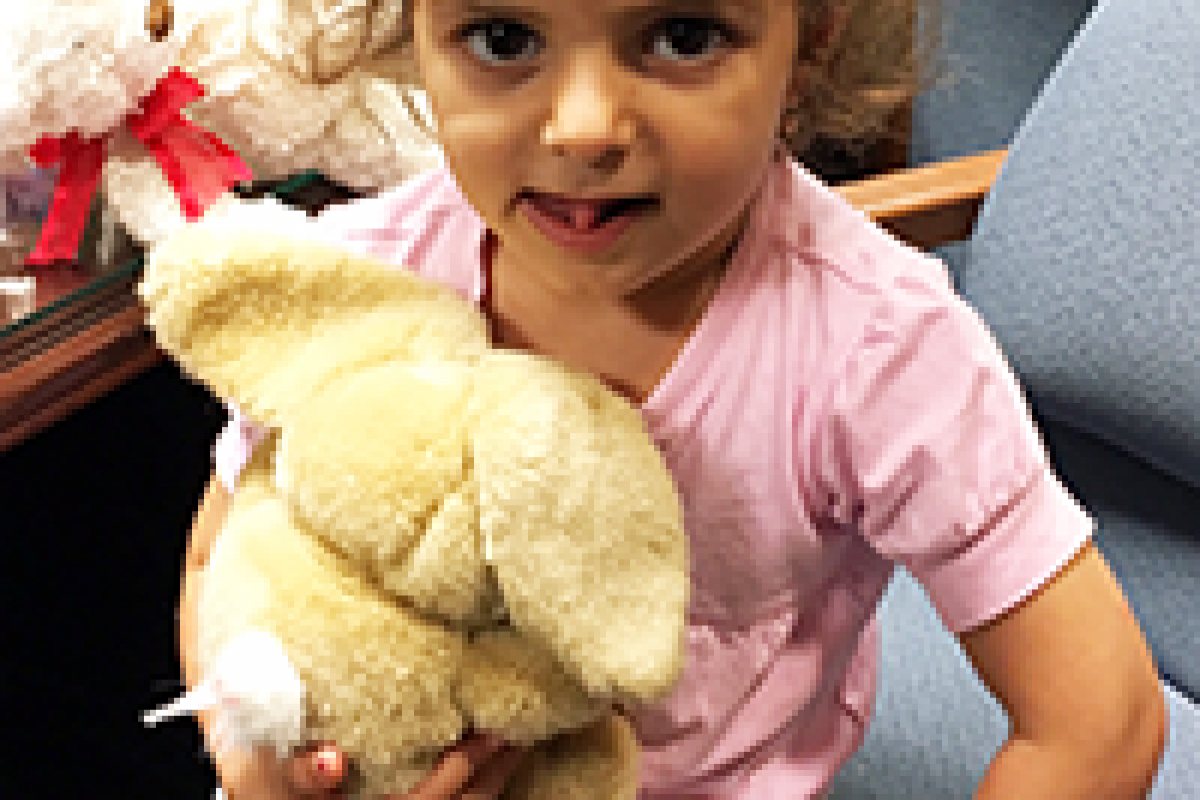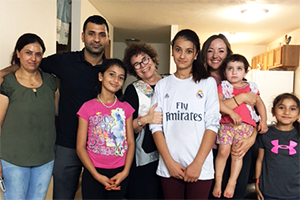New Branches, Far-Away Roots: Iraqi Yazidis Thriving in Nebraska

This is a first-hand account by Jane Bloom, ICMC’s Head of Office in the United States, who was surprised to learn that nearly 40% of all the Yazidi refugees resettled by ICMC out of Turkey landed in one city in America: Lincoln, Nebraska. She decided to find out why – and traveled to Lincoln to meet with these refugees and the provider network that serves them.
Earlier this year, US Secretary of State Kerry designated as “genocide” the atrocities committed by ISIS against “groups in areas under its control, including Yazidis (and) Christians.” I remember watching horrific news reports of 50,000 stranded Yazidis on the top of Mount Sinjar in Iraq for 5 days in the summer of 2014; they had fled to higher ground after some 5,000 of their families and neighbors had been massacred. After the rescue, they escaped to Dohuk, a city in the Kurdistan region of Iraq not far from the border with Turkey. Today, thousands of these forcibly displaced Yazidis live near Dohuk in make-shift “IDP” (internally displaced people) camps, while others have made their way across the border to Turkey as refugees. Several I met with in Nebraska shared photographs taken after the massacre – of the killing fields, the mass graves, relatives who had died; one man showed me ten pictures of himself standing inside the remains of the store he owned – completely torched, only the walls still standing. He fled immediately after taking the photos. Nearly all are worried about extended family members living in the IDP camps.
Those in Turkey whom the United Nations High Commissioner for Refugees (UNHCR) referred to the USA for resettlement become our ICMC cases. Most of those I interviewed had one-to-two year stays in Turkey, coming to our offices in Istanbul a number of times for pre-screening, then for their interview with the US Department of Homeland Security, and – once approved – for cultural orientation and required medical exams. To date, approximately 500 Yazidis (both Iraqi and Syrian) have come to America with the help of ICMC. In the last year alone, 144 Iraqi Yazidis arrived – and of this total, 100 came to Lincoln, Nebraska! Other resettlement cities for Yazidis include Buffalo (New York); San Diego (California); and Harrisonburg (Virginia) – but in much smaller numbers.
Lincoln is now home to an estimated 2,000 Iraqi Yazidis who have come in three “waves” over the last 20 years, spanning the first Gulf War (arriving in mid-1990s), the second Gulf War (arriving 2007-14), and now those fleeing ISIS (arriving 2015-16). In Lincoln, the local affiliate of ICMC’s domestic resettlement partner, the US Conference of Catholic Bishops (USCCB) and another resettlement agency, Church World Service, then take over this end of the “pipeline” to facilitate adjustment and integration, including provision of food and clothing, employment counseling, school enrollment, vaccinations, etc.
By all reports, the Yazidis in Lincoln are doing extremely well. For example, though very few came with education higher than primary grades, their children – according to the Lincoln School District’s English Language Learning representatives – have succeeded in learning English fast and, in spite of interrupted schooling in Iraq and Turkey, have caught up with their grade levels and are flourishing.

As for the adults, reports from the Yazidis’ caseworkers and employment counselors were positively glowing. Those interviewed praised the Yazidi attitude toward work, their resourcefulness, and skills. One staffer from Catholic Charities said, “We always hear from the big employers here that ‘our businesses would go under without the hardworking Yazidi workers.’” A refugee said of his employer: “My company knows we are here to live in peace.” One of the largest employers of Yazidis in Nebraska is retail corporation Walmart, where they work at a wide variety of jobs, including loading, stock, cashier, and manager. “We move up very fast,” one told me; “we get better jobs and more benefits.” The meat packing industry also employs many Lincoln Yazidi men; the work is physically very difficult but the salaries are relatively high.
Once they can afford to buy a car (usually within the first 3-6 months), they move into rental housing a short commute to downtown Lincoln. All told me how safe they feel to be living in Lincoln; one said, “I feel loved here.” A large family I visited had a spacious two-level attached home, with children of all nationalities playing outside together in the common yard and parking lot.
Religion is what “defines” the Yazidi. It is the reason they have been killed and tortured by ISIS, and it is the basis of their persecution claim as refugees. All were proud to say that their religion pre-dates Christianity and Judaism. It is some 6000 years old as a faith, with elements of both Assyrian and Zoroastrian traditions. Thus I found it surprising when they told me, “we have no need for physical places of worship,” and no outward demonstrations of their faith in dress or diet. However, a number of the Yazidis I spoke with were anxious to tell me that their whole community is joining together to build a Yazidi cemetery outside Lincoln, as their religion calls for special burial sites. There was great excitement over this development which “every single Yazidi family in Lincoln has contributed to.” They have purchased some 12-14 acres of cornfields; when the corn harvest concludes, work will begin on the cemetery. I’ve been invited to return once it is completed – and I intend to take them up on the invitation! It was a privilege to listen to their stories and to experience the new lives – new “branches” – they have created.